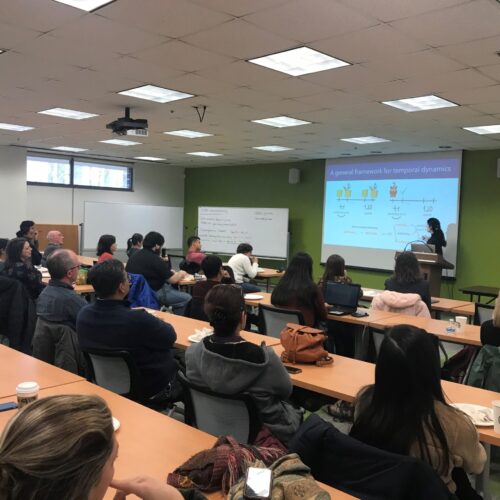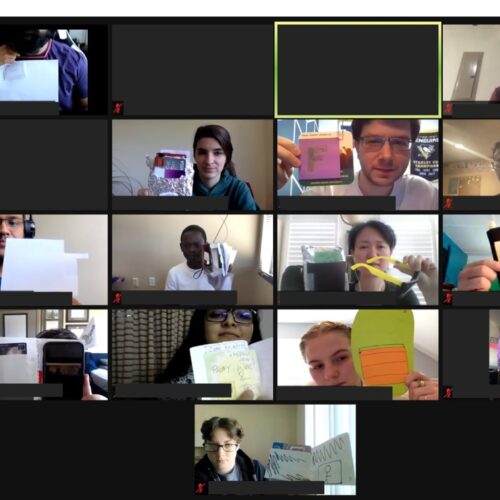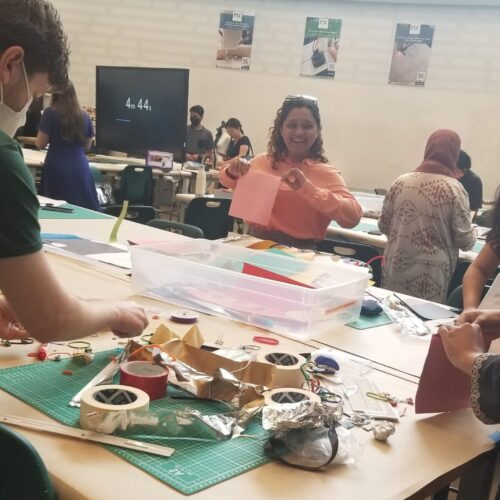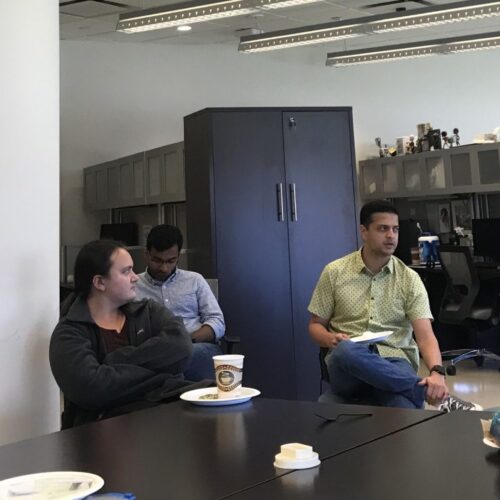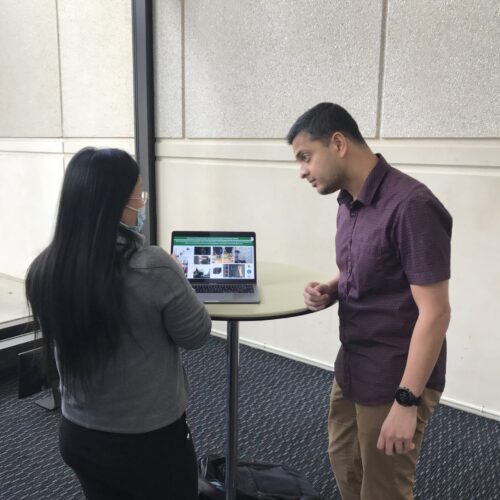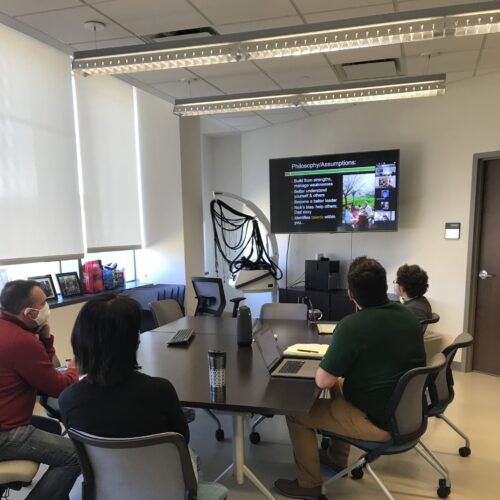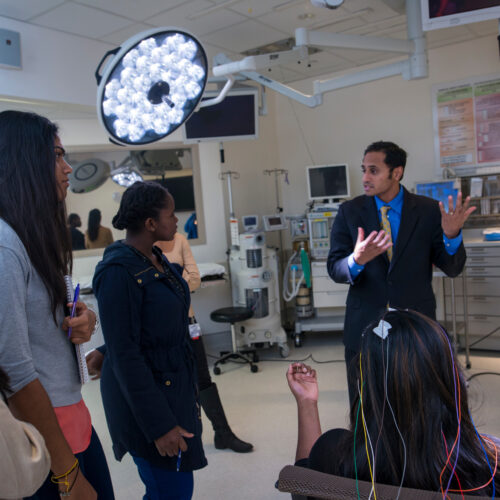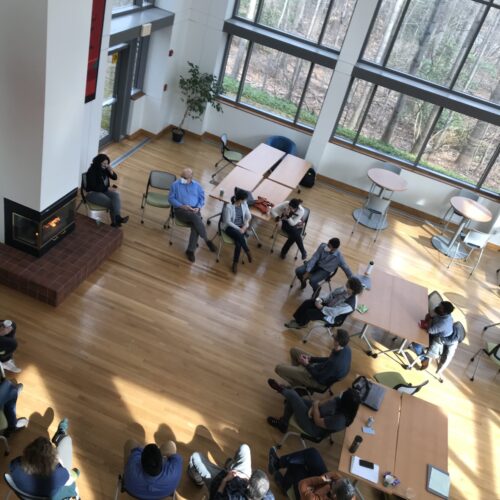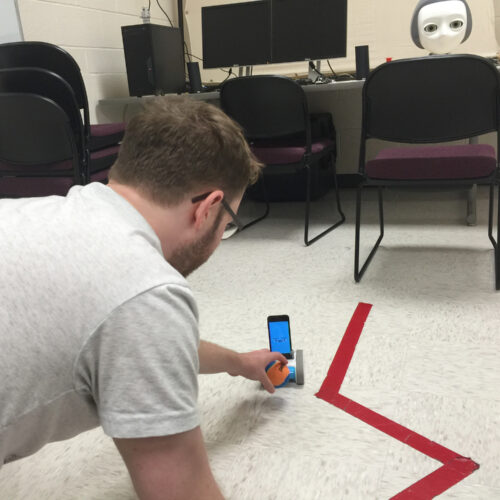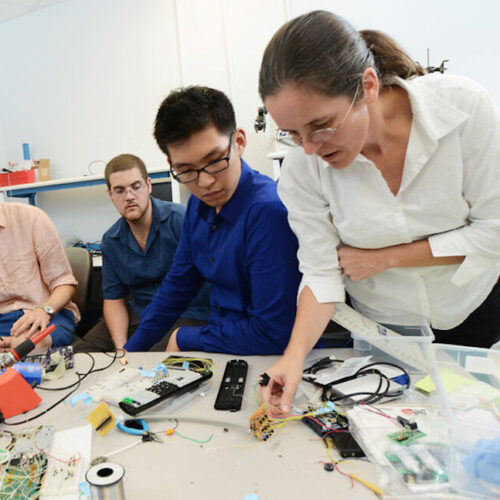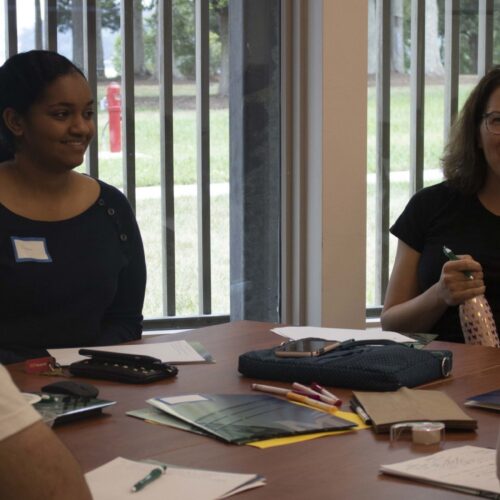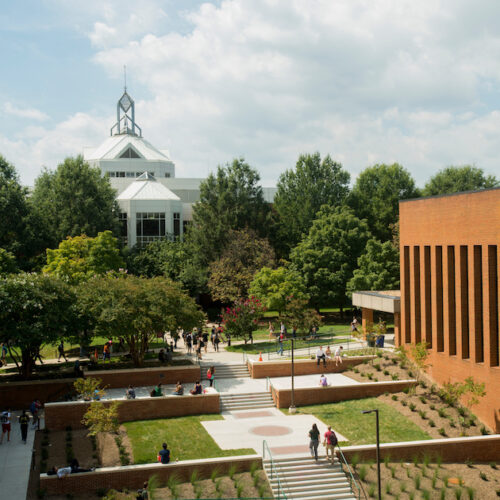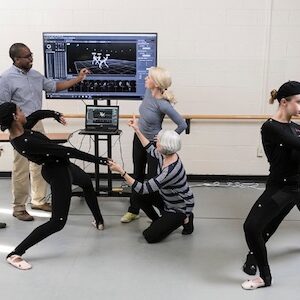About the NSF Research Traineeship (NRT) Program
CASBBI’s NSF Research Traineeship (NRT) Program is training the next generation of leaders to take on some of the most challenging problems faced by society today.
NRT trainees are tackling the opioid use epidemic, mental and behavioral health disorders and enabling individuals with disabilities to participate fully in needed and desired life roles and activities. These complex problems cannot be addressed by one individual or even one discipline.
The next generation of leaders charged with addressing these challenges must work together across traditional academic disciplinary boundaries to integrate engineering, data science, and social science knowledge, while meaningfully engaging with stakeholder communities in a mutually beneficial manner.
The CASBBI NRT program is designed to cross-train graduate students from engineering, data science, and social science disciplines to:
- Define a problem from multiple perspectives based on disciplinary knowledge, lived experiences, and community knowledge
- Utilize design thinking principles to break down open-ended problems
- Develop creative solutions by adapting and applying theories and methodologies from different disciplines
- Communicate effectively with stakeholders and broad audiences
- Work productively on diverse multidisciplinary teams
The NRT program involves an individualized interdisciplinary curriculum, scaffolded by laboratory rotations and hands-on workshops, a year-long community-engaged design project, and training in entrepreneurship, communication skills and team science. Individualized curriculums are tailored to trainees to comply with the requirements of their home graduate degree programs. A limited number of NSF-sponsored one-year fellowships are available for eligible trainees.
As part of the program, trainees have an opportunity to utilize their training in data analytics, wearable sensors and imaging to:
- design new technology-assisted methods for personalized service delivery,
- develop new machine learning algorithms to support the next generation of brain computer interfaces and improved prosthetic control systems;
- advance research on virtual reality-based multi-sensory training.
For more information about the program, contact Program Director Siddhartha Sikdar at ssikdar@gmu.edu.

Community-Engaged Design Projects
A core element of the CASBBI NRT experience is participation in a year-long community-engaged design project. Interdisciplinary teams of NRT graduate students are immersed in community settings, challenging the traditional hierarchies between researchers and participants by engaging community stakeholders as full participants in the research process. Teams work with community partners and stakeholders to:
- identify challenges and needs within a community,
- formulate a research question, and
- engage in participatory design to develop and test ecologically-valid solutions.
Previous projects have focused on important community & societal issues, such as chronic disease management, accesible technology, mental and behavioral health, substance abuse, service delivery and health care systems.
Trainees complete this project as part of a two-course sequence: Community-Engaged Interdisciplinary Design I and II (PROV801/802)
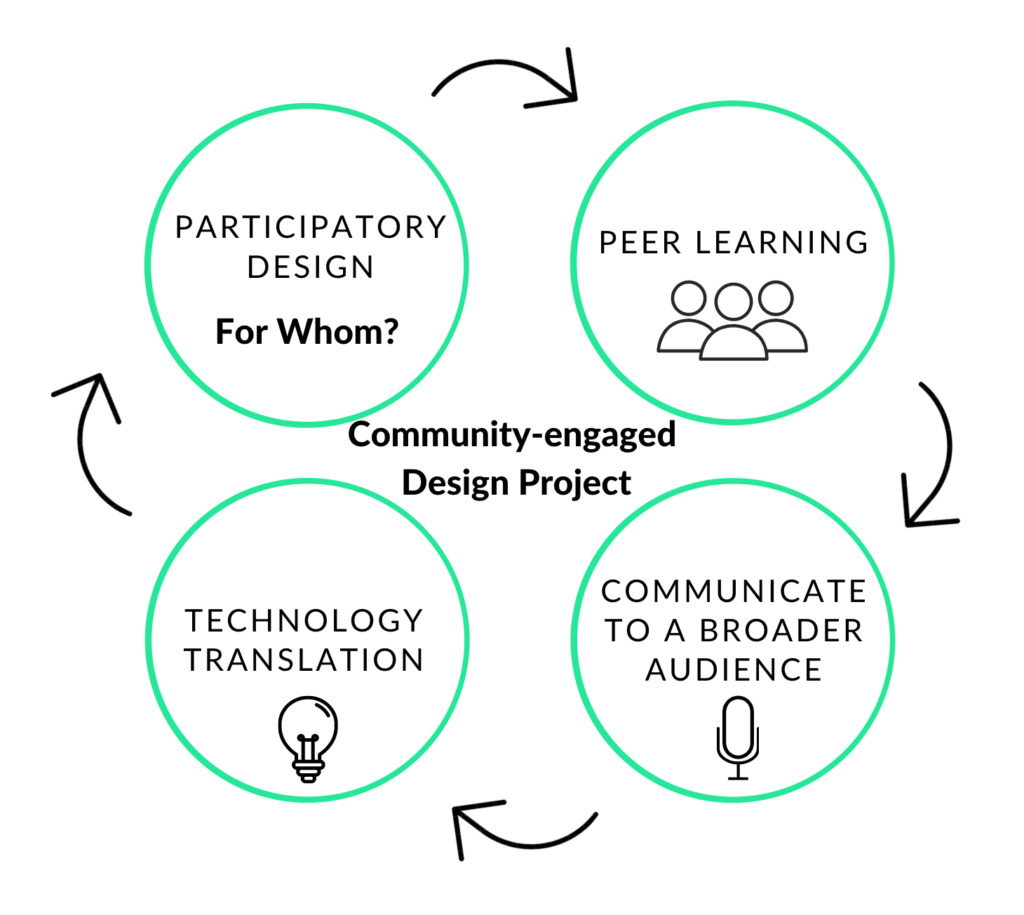
For Potential Community Partners
Community partnership is critical to the work of the CASBBI NRT program. We seek to build long-term relationships, to develop a shared vision and goals, and to work together in a mutually-beneficial manner.
Do you have a need for a research project that will help your organization plan, evaluate, or report on your programs? Provide evidence for policy changes that will benefit the individuals or community that you serve? Understand changes in your community? CASBBI’s NSF Research Traineeship (NRT) program is requesting proposals for NRT community-engaged design and data challenge projects.
The CASBBI NRT program connects teams of graduate students with community partners to conduct a year-long research project. The goal of these projects is to develop solutions that directly address urgent community needs.
Our network of partners is essential to the success of our NRT program. If you are interested in working with the NRT program, please contact Siddhartha Sikdar, Director of the NRT Program, at ssikdar@gmu.edu. You can also propose a project here.
Benefits to partnering with the CASBBI NRT program:
- Have a voice in shaping research and outcomes relevant to the communities you serve
- Connect with Mason graduate students from different disciplines who are interested in developing solutions relevant to community needs
- Establish a pathway to George Mason University for aspiring scholars in your community
- Grow and expand your network to include professionals in other sectors
Ways to be involved:
- Participate in informational interviews with the NRT students to help them understand the complex dimensions of the problems faced by the communities you serve
- Connect students to others in your network who might be willing to share their perspectives on community needs and potential solutions
- Brainstorm with the students to help them identify workable solutions or approaches
Do you have another idea for how to partner with the NRT to solve problems that are important to you? We’d love to hear it! Please contact Siddhartha Sikdar, Director of the NRT Program.
Disclaimer: Any opinions, findings, and conclusions or recommendations expressed in this material are those of the author(s) and do not necessarily reflect the views of the National Science Foundation.

